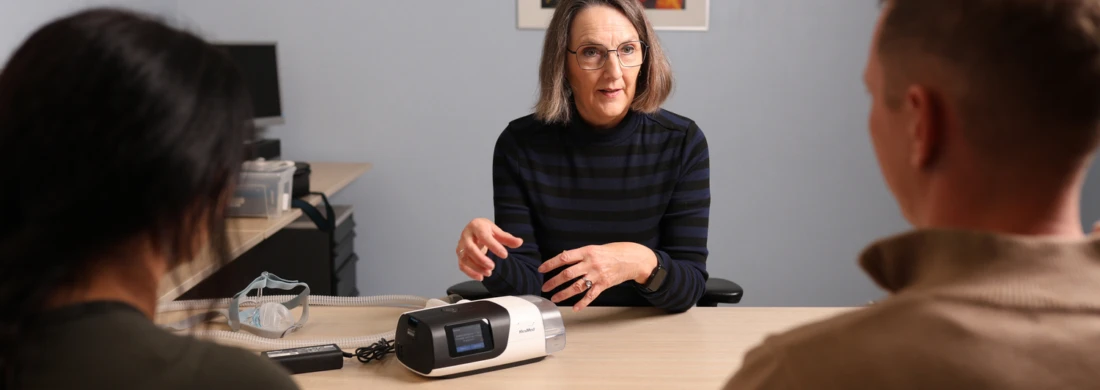My child or another family member with an intellectual disability sleeps poorly
Sleep problems are common among people with intellectual disabilities, but they are often not recognized. These individuals often cannot identify their sleep issues themselves. Additionally, the people around those with intellectual disabilities, both at home and in care settings, are sometimes insufficiently aware of sleep disorders.
A sleep disorder can affect the way someone with an intellectual disability functions and can lead to behavioral problems and mood swings. It can also impact how someone feels physically and mentally. In children with intellectual disabilities, poor sleep can also disrupt growth and development.
The Center for Sleep Medicine at Kempenhaeghe has specialized knowledge and resources to understand and treat the connection between intellectual disabilities, sleep problems, and associated issues (including epilepsy).
Types of sleep disorders
People with intellectual disabilities can suffer from the same sleep disorders as those without disabilities. These may include:
- Disrupted breathing during sleep (sleep apnea)
- Prolonged insomnia
- Excessive daytime sleepiness (hypersomnia)
- Unusual behavior and movement disorders during sleep (parasomnia)
The brains of people with intellectual disabilities show different activity during sleep. Furthermore, as the intellectual disability becomes more severe, distinguishing between different sleep phases in brainwaves becomes increasingly difficult. Additionally, many people with intellectual disabilities also have epilepsy. The epileptic seizures may be related to sleep quality and make analyzing sleep recordings in individuals with intellectual disabilities even more complex. At Kempenhaeghe, specialists are specifically trained to assess sleep studies in people with intellectual disabilities.
Diagnosis and treatment
Various experts are involved in the diagnosis and treatment, with medical specialists, psychologists, and behavior therapists forming at least part of the treatment team.
To determine the cause of the sleep disorder, a sleep study (polysomnography) is often conducted, along with observations and possibly additional tests such as blood work or epilepsy testing. The treatment is tailored to the individual needs of the patient. It may involve medical treatment, but also behavior therapy and adjustments in daily life. Advice on day and night routines, adjustments to daily activities, and sometimes even changes in living arrangements can be initial steps toward better sleep. The treatment of sleep problems in people with intellectual disabilities is always customized.
Follow-up and continuation
Depending on the progress of the treatment, patients and their families or caregivers are supported or referred to other healthcare providers. Kempenhaeghe keeps the referring doctor informed about the results and progress of the treatment.
